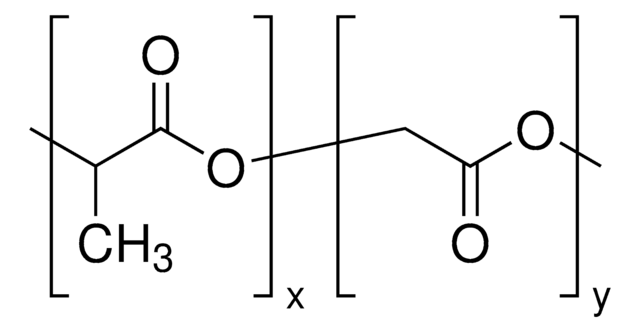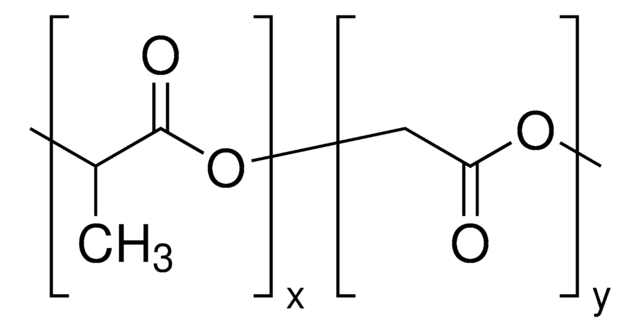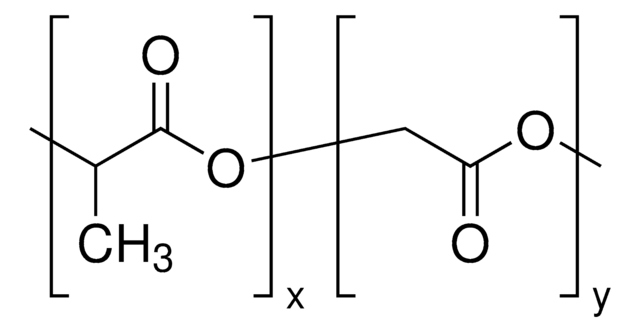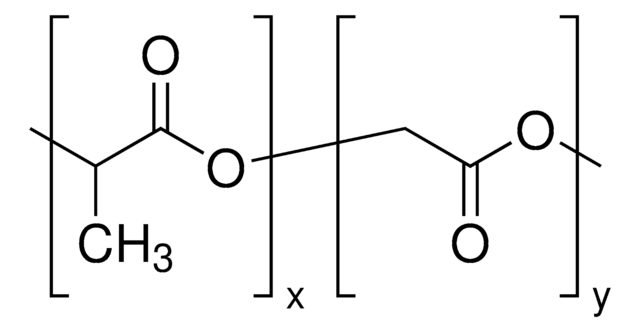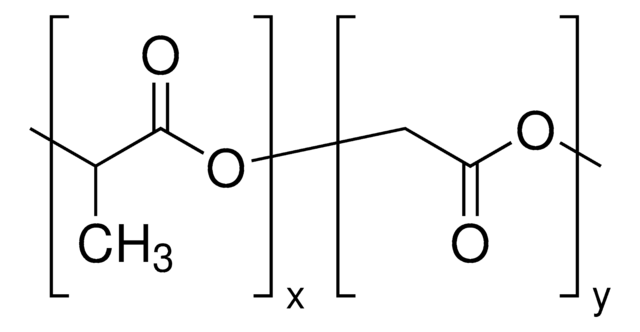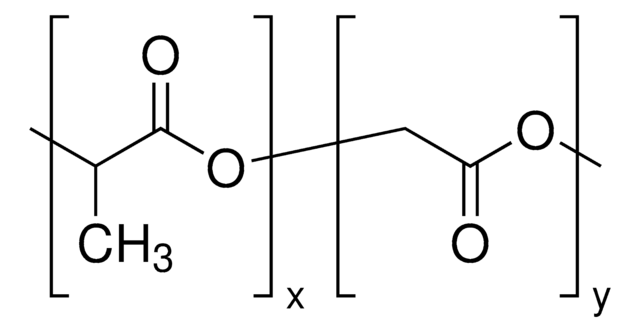430471
Poly(D,L-lactide-co-glycolide)
ester terminated, Mw 50,000-75,000
Synonyme(s) :
Lactel® B6006-1, PLGA
About This Item
Produits recommandés
Niveau de qualité
Forme
amorphous
Ratio alimentaire
lactide:glycolide 85:15
Poids mol.
Mw 50,000-75,000
Intervalle de dégradation
<6 months
Viscosité
0.55-0.75 dL/g, 0.1 % (w/v) in chloroform(25 °C)
Température de transition
Tg 45-50 °C
Solubilité
ethyl acetate, chloroform, acetone and THF: soluble
Température de stockage
2-8°C
Chaîne SMILES
OCC(O)=O.CC(O)C(O)=O
Vous recherchez des produits similaires ? Visite Guide de comparaison des produits
Description générale
Application
Caractéristiques et avantages
Forme physique
Informations légales
Code de la classe de stockage
11 - Combustible Solids
Classe de danger pour l'eau (WGK)
WGK 3
Point d'éclair (°F)
Not applicable
Point d'éclair (°C)
Not applicable
Équipement de protection individuelle
Eyeshields, Gloves, type N95 (US)
Faites votre choix parmi les versions les plus récentes :
Déjà en possession de ce produit ?
Retrouvez la documentation relative aux produits que vous avez récemment achetés dans la Bibliothèque de documents.
Les clients ont également consulté
Articles
Interest in utilizing biodegradable polymers for biomedical applications has grown since the 1960s.
The world of commercial biomaterials has stagnated over the past 30 years as few materials have successfully transitioned from the bench to clinical use. Synthetic aliphatic polyesters have continued to dominate the field of resorbable biomaterials due to their long history and track record of approval with the U.S. Food and Drug Administration (FDA).
The world of commercial biomaterials has stagnated over the past 30 years as few materials have successfully transitioned from the bench to clinical use. Synthetic aliphatic polyesters have continued to dominate the field of resorbable biomaterials due to their long history and track record of approval with the U.S. Food and Drug Administration (FDA).
Aliphatic polyesters such as polylactide, poly(lactide-co-glycolide) and polycaprolactone, as well as their copolymers, represent a diverse family of synthetic biodegradable polymers that have been widely explored for medical uses and are commercially available.
Notre équipe de scientifiques dispose d'une expérience dans tous les secteurs de la recherche, notamment en sciences de la vie, science des matériaux, synthèse chimique, chromatographie, analyse et dans de nombreux autres domaines..
Contacter notre Service technique